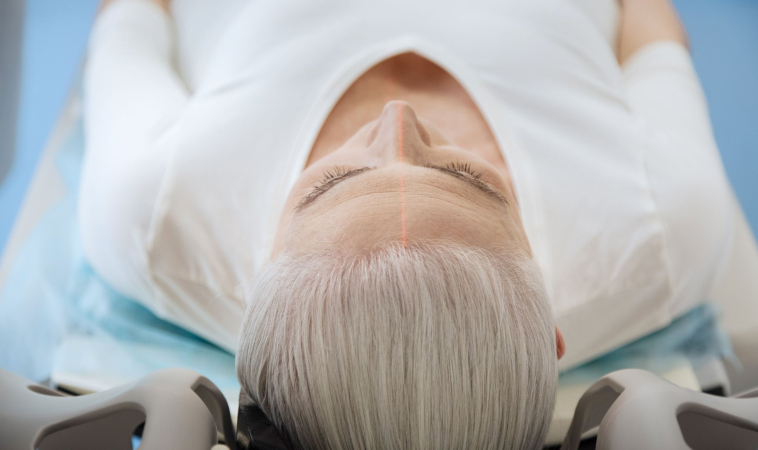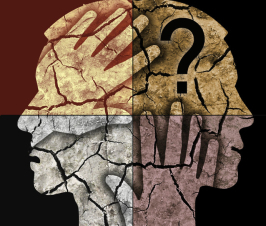Brain stimulation with electrical current is becoming increasingly popular for treating a wide range of pathologies: depression, anxiety, developmental disorders and even Alzheimer’s disease. But a recent research study has put the effectiveness of these treatments into question – specifically, transcranial Direct Current Stimulation (tDCS).
What is Transcranial Direct Current Stimulation (tDCS)?
From Kingston University, Dr. Giulia Galli, was part of a research team that investigated tDCS, which is a technique that involves administering a very weak (2 milliamp) electrical current to specific parts of the brain. Electrodes are attached to the head to deliver the current.
“During the past 15 years, increasing numbers of people have started to use tDCS with a great deal of enthusiasm, claiming it can improve a range of neurological functions – including enhancing memory in Alzheimer’s patients and improving dyscalculia in children with developmental disorders,” Dr Galli said. “The technique is relatively cheap and easy to use compared to other brain stimulation techniques – specially-designed caps are even available for people to try it at home – and in almost every field of mental processes research contends that it works. Yet there are now real question marks over the evidence for those claims.”
Effects of tDCS were measured across a range of variables
Researchers from Spain and Russia also took part in the studies, which analyzed findings from all of the existing studies in order to determine the effectiveness of the technique on long term memory. Over the past five years there has been feedback on the relatively low number of participants involved in studies of tDCS, as well as design flaws of studies and publication bias. Positive results have seemed to be published more frequently.
“The claim for many years has been that this technique is a like a miracle cure. Yet, in examining all 28 published studies looking at the impact of tCDS on long term memory, we found no statistically significant effect when all the data was taken together. We’re not saying the technique is not effective in all cases, but we need to know under what specific circumstances it does have an impact,” Dr Galli said.
A significant enhancement of memory performance was only found when tDCS was delivered during this task
The team evaluated the effects of tDCS across a range of variables, including length of administration, nature of the memory encoding task and age of the participants. A significant enhancement of memory performance was only found when tDCS was delivered in more difficult memory tasks. The longer the technique was applied, the more effective it was and this improvement was evident in adults of all ages.
What the findings suggest
The team’s findings provided an insight for the scientific community in to how this technique can be used effectively and would help to set out the optimal conditions for the use of tCDS for neuro-rehabilitation of patients with memory decline, Dr Galli said.
“TCDS has real potential to improve mental functions relating to memory, but only works under certain circumstances. If we want it to be effective, we need to get those conditions right, otherwise we’re missing opportunities to support patients. This research takes us a step closer to identifying those specifics,” Dr Galli said.
 Razi Berry is the founder and publisher of the journal Naturopathic Doctor News & Review, which has been in print since 2005, and the premier consumer-faced website of naturopathic medicine, NaturalPath. She is the host of The Natural Cancer Prevention Summit and The Heart Revolution-Heal, Empower and Follow Your Heart, and the popular 10 week Sugar Free Summer program. From a near death experience as a young girl that healed her failing heart, to later overcoming infertility and Chronic Fatigue Syndrome and Fibromyalgia through naturopathic medicine, Razi has lived the mind/body healing paradigm. Her projects uniquely capture the tradition and philosophy of naturopathy: The healing power of nature, the vital life force in every living thing and the undeniable role that science and mind/body medicine have in creating health and overcoming dis-ease. Follow Razi on Facebook at Razi Berry and join us at Love is Medicine to explore the convergence of love and health.
Razi Berry is the founder and publisher of the journal Naturopathic Doctor News & Review, which has been in print since 2005, and the premier consumer-faced website of naturopathic medicine, NaturalPath. She is the host of The Natural Cancer Prevention Summit and The Heart Revolution-Heal, Empower and Follow Your Heart, and the popular 10 week Sugar Free Summer program. From a near death experience as a young girl that healed her failing heart, to later overcoming infertility and Chronic Fatigue Syndrome and Fibromyalgia through naturopathic medicine, Razi has lived the mind/body healing paradigm. Her projects uniquely capture the tradition and philosophy of naturopathy: The healing power of nature, the vital life force in every living thing and the undeniable role that science and mind/body medicine have in creating health and overcoming dis-ease. Follow Razi on Facebook at Razi Berry and join us at Love is Medicine to explore the convergence of love and health.

















